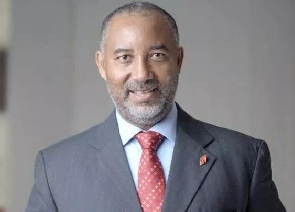Finance expert, Alex Mould has expressed serious reservations about the relatively high rate of the country’s interest payment on debts accrued (debt-servicing), currently galloping at about four (4) times more than domestic-tax revenue mobilization growth over the past four years.
Alex Mould, former Executive Director at Standard Chartered Bank; and past CEO of GNPC and NPA, shared some insight on the mid-year review budget and overall economic outlook. He commented that, the country’s domestic-tax revenue mobilization has grown by only 39% in four (4) years but interest debt-service payment has grown by 144%.
Data made available by the expert as sourced from the Ministry of Finance indicates: - In 2016, domestic-tax revenue was GHC25.729 billion as against interest payment on Ghana’s public debt of GHC10.770 billion giving an interest payment on public debt to domestic-tax revenue ratio of 42%.
-Analysis of the data from MoF shows an upward trend of Interest debt-service payments to domestic-tax revenue collections with 2019 at 47% and 2020 at 62%.
-In 2019, domestic-tax revenue was GHC42.775 billion as against interest payment on Ghana’s public debt of GHC19.769 billion giving a ratio of 47%.
However, using projected 2020 full-year figures, domestic-tax revenue is expected to be GHC42.331 billion as against projected interest payment of GHC26.268 billion Ghana’s public debt, resulting in a staggering ratio of interest payment to domestic-tax revenue of 62%.
“We should be very concerned about Government’s ability to meet its interest payments from tax revenue which forms about 80% of our Total Domestic Revenue, which also forms about 97.5% of Total Government Revenue,” Mr. Mould emphasized.
Adding that, “Our domestic tax revenue has only grown 39% in 4 years but our interest debt service has grown by 144%.” This attests to the fact that we are borrowing to meet our expenditure, which is mainly a combination of consumption and expenditure on some of the ill thought-out manifesto promises made by Nana Akuffo-Addo’s government.
It would rather be more prudent to spend on the critically needed infrastructural investments which will have a multiplier effect and will produce dividends in the near future.
Click to view details



Business News of Monday, 3 August 2020
Source: Dickson Boadi, Contributor

















